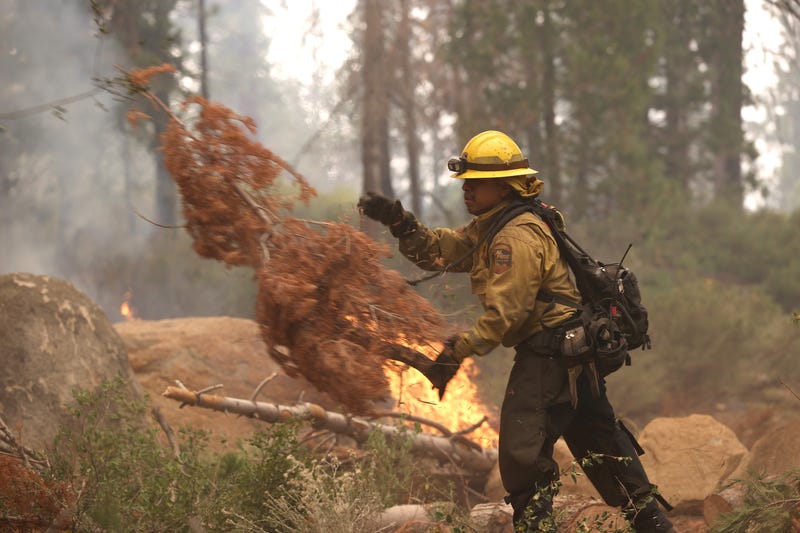
California's two biggest active wildfires are now over 50% contained, but officials fear the state isn't out of the woods just yet.
The Caldor Fire was 50% contained after burning 217,007 acres as of Tuesday night, while the Dixie Fire was 59% contained after burning 919,300 acres, according to CAL FIRE. Tuesday night marked the first time both fires were at least halfway contained.
Despite the progress on the state's two biggest fires, officials' optimism was muted Tuesday morning during the weekly California Governor’s Office of Emergency Services briefing. CAL FIRE Chief Thom Porter said he was proud firefighters were able to "protect lives, and property and the environment" in South Lake Tahoe from the Caldor Fire and parts of Plumas County from the Dixie Fire, among other areas.
But as of Tuesday’s briefing, over 2 million acres had burned throughout the state, almost half in the Dixie Fire alone.
The 2021 totals are, so far, on par with this time in 2020, per CAL FIRE. Last year, over 4.25 million acres burned in California, setting a state record. CAL FIRE anticipates drier, windy conditions for the rest of the year, based on its three-month weather projections.
Those conditions, in turn, are expected to lead to large fire activity.
"That's sobering," Porter said of the similarities between 2021 and 2020 during Tuesday morning’s briefing. "That is the new reality. That's what we're looking at."
The rapid succession of California hasn't left much time for crews to physically or mentally recover, and mental health experts have said these wildfires qualify as significant traumatic events.
Dr. Angela Drake, a clinical neuropsychologist at UC Davis, cautioned to KCBS Radio in an interview Tuesday that firefighters need to have traumatic stress addressed before it manifests itself into recognizable symptoms. That’s especially important, according to Dr. Drake, amid a national, seemingly never-ending string of natural disasters.
"We don't want until somebody gets (post-traumatic stress disorder) to treat 'em," she said. "We want to get 'em as early as possible. We don't want to wait until a firefighter is having terrible nightmares and hasn't slept for three months, and is totally withdrawn and not functioning."
With the current wildfire season yet to peak, according to state officials, it’s especially important firefighters find ways to decompress. Eating a normal meal, exercising and other activities that allow firefighters to reset are critical, Dr. Drake said.

